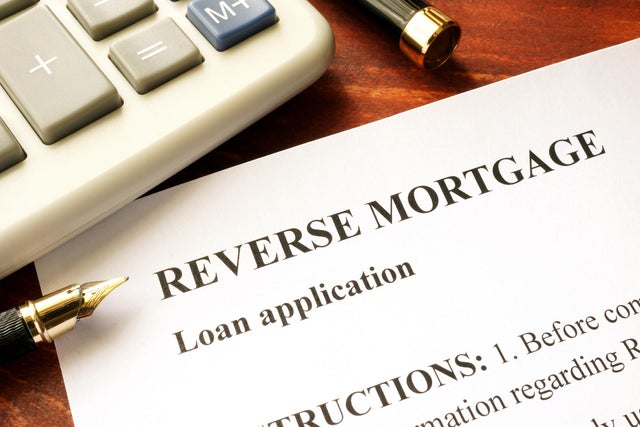How hard is it to qualify for a reverse mortgage?
For many retirees, their home represents their largest financial asset, often containing hundreds of thousands of dollars in home equity built up over decades of ownership. And, with questions surrounding the long-term viability of the Social Security program, and with stock market volatility becoming the norm rather than the exception, many seniors are looking for ways to tap into that home equity, preferably without selling their homes. As a result, reverse mortgages have become a popular solution to consider, as these loans allow homeowners to convert home equity into cash without the burden of monthly payments while they continue to live in their property.
However, qualifying for a reverse mortgage isn't as simple as being a certain age and owning a home. The lending landscape has evolved significantly over the past decade, and there are now more safeguards and requirements in place to protect both borrowers and lenders from potential pitfalls. So, what was once a relatively straightforward process now comes with rules, costs and trade-offs that make a reverse mortgage very different from your other home equity borrowing options. For those considering a reverse mortgage, it's worth understanding both how reverse mortgages work and how challenging it might be to actually qualify.
Compare your reverse mortgage borrowing options and find the right fit now.
How hard is it to qualify for a reverse mortgage?
Reverse mortgages are generally easier for older homeowners to qualify for compared to traditional forward mortgages, home equity lines of credit (HELOCs) or home equity loans. There's no minimum credit score requirement, and you don't need to worry about debt-to-income ratios that trip up so many conventional loan applicants. But don't mistake "easier" for "automatic."
The federal government sets specific requirements for Home Equity Conversion Mortgages (HECMs), the most common type of reverse mortgage. Here's what those are:
- Age requirement: You must be at least 62 years old. This is non-negotiable, and younger homeowners aren't eligible for HECMs.
- Primary residence: The property must be your primary home. Vacation homes, second homes or investment properties generally do not qualify.
- Home equity: The lender needs to see that you have sufficient equity. You should typically either own your home outright or have a low mortgage balance that can be paid off with the reverse mortgage proceeds. The more equity you have, though, the larger the potential loan amount you can borrow.
- Financial assessment: Lenders conduct a detailed review of your income, assets and debts. They want to ensure you can cover property taxes, homeowners insurance and maintenance costs. When applicants fail this financial assessment, it's often due to high debt or inconsistent income streams.
- Counseling requirement: Before approval, federal law mandates that borrowers receive counseling from an independent reverse mortgage counselor. This session ensures that borrowers understand the financial implications, including repayment obligations, fees and impacts on heirs.
While these requirements may seem strict, they are designed to protect borrowers from taking on reverse mortgage loans they may not fully understand. Failing to meet any of these criteria can mean the difference between approval and denial, though, which is why preparation and documentation are key.
Explore the reverse mortgage loan options available to you today.
How to improve your chances of getting approved for a reverse mortgage loan
While you can't change your age or the equity already in your home, there are steps you can take to increase the chances of your application being approved:
- Pay down existing debt: Reducing outstanding mortgages, credit card balances or other loans shows lenders you can manage your ongoing expenses.
- Maintain a strong payment history: On-time payments for mortgages, taxes and insurance are a clear signal of financial reliability.
- Keep adequate income or assets: Reverse mortgage lenders want to see that you can cover property taxes, insurance and home maintenance. Documenting savings, pensions or other income streams strengthens your case.
- Attend the required counseling session prepared: Go in with questions and a clear understanding of your finances. Demonstrating that you understand the obligations and risks of a reverse mortgage can help reassure lenders that you're a good candidate for this type of borrowing.
- Keep your home in good condition: Lenders assess property value and condition before approving a loan. Routine maintenance and minor repairs can prevent appraisal issues.
- Work with a reputable lender: Your reverse mortgage lender's experience can make a big difference in the approval process, especially if your financial situation is complex.
The bottom line
For those who meet the criteria and plan carefully, a reverse mortgage can unlock much-needed funds while allowing seniors to remain in their homes. However, qualifying for a reverse mortgage is hardly an effortless task. Factors like your age, home equity and financial stability are non-negotiable. Federal counseling also adds an additional layer of scrutiny, but that scrutiny is designed to protect borrowers.
Ultimately, though, qualifying for a reverse mortgage is about more than just meeting the requirements. It's about ensuring this financial tool genuinely improves your retirement security without creating new problems down the road, so in addition to meeting the basic requirements, it's equally important to do your own research and ensure that this borrowing option is truly the right fit for your needs.
